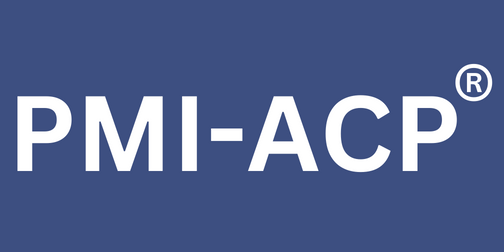
Project management tips for beginners
Posted On July 12, 2024 - 16:13 PM
Do you ever feel overwhelmed when you are in charge of a new project? Don't worry, you're not the only one. The juggling of tasks as well as keeping everyone up to date and tackling unexpected obstacles can all be part of a project manager's responsibilities. However, don't worry about it, you're a future leader! If you're charged with launching an advertisement initiative or streamlining your internal procedures this guide provides you with the fundamental information to tackle your first task.
Here are some basic tips to prepare you for success:
1. Define Your Destination: Setting SMART Goals
-
Before you can set sail, you should have an idea of where you want to go. Similar to projects. Set SMART goals: Specific, Measurable, Attainable Relevant, Time-bound and Relevant.
-
It is important to clearly define what your project's goal is to achieve, as well as how you will track progress, and be sure that your goals are achievable within the specified time frame.
2. Assemble Your Crew: Building a Strong Team
-
There is no single project that can be completed. Select a team comprised of an array of abilities and experiences.
-
Assign tasks efficiently, taking into account the strengths of each member. Encourage an open and collaborative environment The strength of a team is the foundation of any success-oriented project.
3. Chart Your Course: Creating a Work Breakdown Structure
-
The project can be broken down into smaller, more manageable tasks that can be managed in a smaller, manageable way.
-
The work Breakdown Structure (WBS) is an outline of hierarchical order that graphically illustrates the project's deliverables along with the steps necessary to accomplish these. The roadmap helps keep everyone on the same page and ensures that no vital information is lost.
4. Navigate the Waters: Utilize Project Management Tools
-
It's not necessary to reinvent the wheel. Many different project management software options are available, which include features like task control, communications channels and tracking progress.
-
Utilize these tools to simplify your process and ensure everyone is on the same page.
5. Communication is Key: Keeping Everyone Informed
-
Don't overlook the power of consistent and consistent communication. Set up communication guidelines - how often will team meetings take place?
-
What is the platform that will be used to communicate updates? Update stakeholders regularly on the progress made, resolve roadblocks quickly and be open to suggestions.
6. Expect the Unexpected: Planning for Risks
-
Well-thought-out plans can face unexpected obstacles. Be proactive in identifying dangers that could hinder the progress of your project.
-
Create contingency plans to reduce the risks. Ensure there is a backup plan in place.
7. Celebrate Milestones and learn from Setbacks
-
Recognize achievements throughout the process. Highlight milestones to keep the team's motivation high and morale high.
-
But don't be afraid to refrain from looking at failures. Do post-project reviews to pinpoint areas of improvement and make sure that you're always learning and improving your skills in managing projects.
Why Project Management is More Important Than Ever in 2024
The ever-changing business landscape requires an effective approach to the process of project execution. In 2024, here's a reason managing projects remains an essential capability:
-
Achieving in a Hybrid Environment: Remote and hybrid working models will continue to be in use. Effective project management will ensure an effective communication system with task delegation and tracking progress across geographic boundaries, encouraging productivity and collaboration.
-
Making Use of Technological Advancements: Artificial Intelligence-powered software and insights based on data have transformed the management of projects. Project managers who can leverage these advances can automate routine tasks, identify risks and optimize allocation of resources to maximize efficiency.
-
The rise of Generative AI: Generative AI creates content, automating tasks as well as streamlining processes. Project managers who know these tools can free time for team members to engage in creative problem-solving and strategic thought, which leads to more creative project management.
-
Prioritizing cybersecurity: As our reliance on technology expands so do cyber-security threats. Effective project management includes strong security measures right from the beginning, protecting sensitive information and ensuring that projects' deliverables are secure.
-
Adapting to change: The business landscape is always changing. Project managers who are skilled in managing change effectively overcome unexpected obstacles, alter the plans of their projects as required and ensure that teams remain flexible and able to adapt in a constantly changing environment.
How Project Management Skills Can Supercharge Your Career
The ability to manage projects isn't only about executing successful projects; it's an essential skill that can help propel your career in a variety of ways:
-
Higher demand: Project managers are highly sought-after across different sectors. This means they have high job security as well as numerous opportunities for career advancement. With the increasing emphasis placed on projects-based work, these abilities are popular with employers.
-
Skills that can be transferred: The core principles of managing projects including planning, organization, communicating, and problem-solving can be applied to any situation. Whatever your field of study the skills you acquire will make you an effective resource in any position.
-
Learning and Development for Leaders: Project managers lead teams, manage resources and assign tasks. This training helps develop your leadership abilities which makes you an ideal candidate for managerial or supervisory posts down the road.
-
Pay-Per-Salary: Managerial roles in project management usually come with competitive pay. As you progress in knowledge and experience you earn, your potential earnings are significantly increased.
-
Career Flexibility: Project management skills open doors to diverse career paths. You could specialize in a particular field or apply your knowledge to manage projects across various departments within a business.
The five most often referenced variables of control for projects are:
-
Scope: The scope refers to the deliverables of the project - the specifics of what must be done. A well-organized project control system ensures that the scope remains on the right track, and avoids feature creep or last-minute modifications which could derail the project.
-
Timing: Time management is vital to project success. Controlling projects involves establishing realistic schedules, evaluating progress as well as identifying and minimizing delays to keep the project on time.
-
Price: Staying within budget is crucial. Controlling project costs requires careful cost estimation, monitoring expenses and identifying areas in which cost reductions can be made.
-
Qualitative: Deliverables must meet the requirements for quality. Control processes for projects ensure that quality is maintained throughout the project to prevent delays and rework.
-
Risk: Unexpected events can make a project go off-course. Controlling projects involves actively finding potential risks, and creating contingency plans and the right risk management strategies in place to limit the impact.
Conclusion
The process of managing projects can seem overwhelming initially however, with these basic guidelines and the desire to study, you're prepared to navigate the thrilling world of project management. Be aware that effectively managing projects is a constant learning process. Be open to challenges, and adapt to new circumstances and you'll have the ability to steer projects to a successful conclusion within a matter of minutes!
Check out this blog : How to improve your project management skills


















